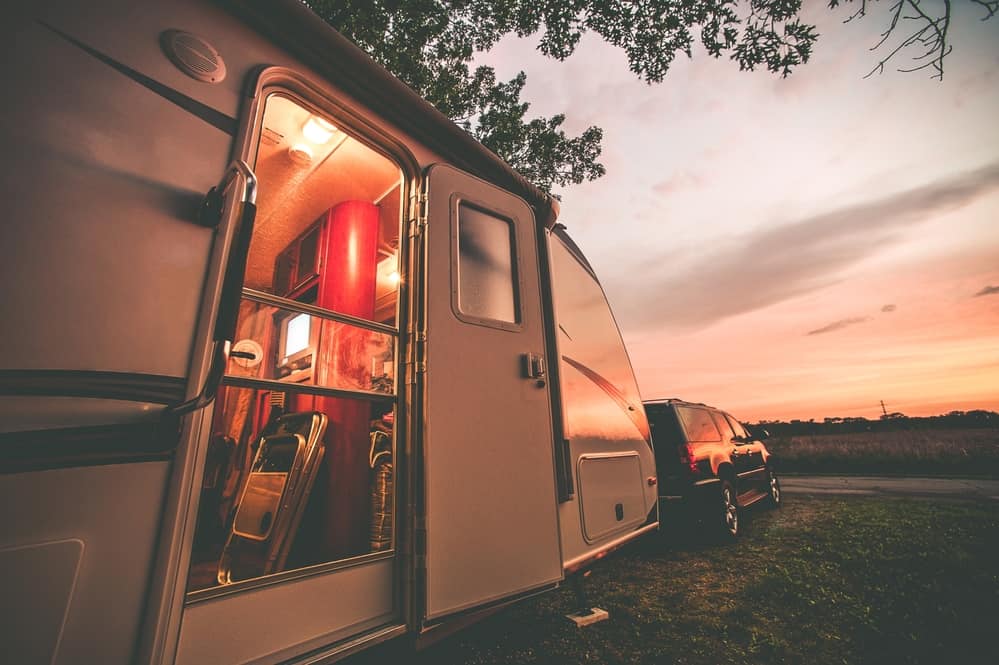Do I need a special license to drive an RV in Florida?
With the weather warming up, you may be thinking of getting a recreational vehicle or RV to go on vacation and enjoy the sights while you travel. However, if all you’ve ever driven are standard cars, trucks and vans, you may be wondering if you need an additional license or an endorsement in order to drive an RV in Florida. The simple answer is that it depends on the weight of the RV and the reason you’re driving it.
Types of Drivers Licenses in Florida
There are two primary types of driver’s licenses in Florida, Including non-commercial and commercial. When you’re thinking about purchasing and driving an RV or motorhome, you’re probably wondering if you need a commercial driver’s license. The truth is that you probably do not need an additional license, but let’s take an in-depth look at both types of licenses.
Non-Commercial Driver’s Licenses in Florida
When you apply for a learner’s permit, pass your driver’s tests and get your driver’s license, the license is called a non-commercial driver’s license or a Class E license. This is what the majority of people receive, and you can drive any personal transportation vehicle under 26,001 pounds as well as rent a vehicle for vacation purposes or to help you complete a move to a new location. Most RVs weigh less than 26,001 pounds and carry less than 15 passengers, so there’s a good chance that all you need to drive your new RV is a Class E license.
Additional types of vehicles you can drive with a non-commercial driver’s license include:
- 15 passenger vans
- Two and three-wheeled motor vehicles with engines of 50cc or less, such as mopeds and powered scooters.
- Authorized emergency vehicles, such as ambulances
- Farm equipment, such as tractors and plows
Commercial Driver’s Licenses in Florida
Individuals driving vehicles that weigh more than 26,001 pounds are required to get a commercial driver’s license (CDL) In most people’s minds, this most often applies to the drivers of semis or tractor-trailers. However, there are three types of CDLs, including Class A, Class B and Class C.
- Class A CDL – trucks or trucks with trailers that weigh more than 26,001 pounds with a trailer that weighs no more than 10,000 pounds.
- Class B CDL – Straight trucks (trucks without a trailer or that are a single piece) that weigh more than 26,001 pounds.
- Class C CDL – trucks that transport hazardous materials and vehicles that are rated for the transport of more than 15 passengers, regardless of weight.
Drivers and Vehicles Who Are Exempt from CDL Requirements
Certain types of vehicles and the drivers of those vehicles are exempt from needing a CDL. These include:
- Individuals who are driving emergency vehicles that have lights and sirens
- Individuals in the military who are driving military vehicles.
- Farmers who are transporting their farm supplies or goods for storage or processing, providing the destination is within 150 miles of the farm.
- Drivers who are driving a recreational vehicle that is being used for recreational purposes.
- Individuals who are driving straight trucks for the sole purpose of transporting their own personal property, and that personal property is not for sale.
- Individuals who work in public transportation, and their sole job is to move those vehicles in order to park them on the private land owned by the company or in order for those vehicles to receive maintenance.
How Drivers Licenses Apply to RVs in Florida
Most RVs weigh less than 26,001 pounds, which means you do not need a special driver’s license endorsement or CDL to drive the RV for your own recreational purposes. RVs are also listed in the exemptions for CDL licenses, providing you’re not driving that RV for hire.
Classes of RVs and Their Weights
RVs have three primary classes, including Class A, Class B and Class C, with Class A being the largest and Class B being the smallest.
- Class A – These RVs range in length from 21 to 45 feet and can sleep between 1 and 8 people. They weigh between 13,000 and 30,000 pounds. If you’re purchasing an RV of this class and it weighs more than 26,001 pounds, you’ll want to check with your local Florida DMV to see if you need a CDL driver’s license.
- Class B – These RVs range in length from 17 to 19 feet and can sleep between 1 and 4 people. They weigh between 4,000 and 9,000 pounds. You do not need a CDL to drive this type of motorhome for your own recreational use.
- Class B+ – Class B+ is a subcategory of B. These RVs are slightly longer, usually between 20 and 30 feet. They can sleep between 1 and 8 people and weigh between 7,000 and 12,000 pounds. You would not need a CDL to drive this RV for your own recreational use.
- Class C – Class C motorhomes range in length from 20 to 31 feet and weigh between 10,000 and 13,000 feet. You would not need a CDL to drive this motorhome for your own recreational purposes.
Driving a Motorhome for Hire
If you’ve been hired to drive a motorhome, you may need a CDL, especially if that motorhome weighs more than 26,001 pounds. It’s best to check with your local DMV if you’re thinking of getting a job driving RVs.
Getting Insurance for Your RV with Fearnow
While you may not need a CDL to drive your motorhome, you definitely want recreational vehicle insurance. RV insurance covers motorhomes, 5th wheels, travel trailers, campers, toy haulers, hybrid models and truck conversions. Standard vehicle insurance does not typically cover RVs, campers and toy haulers.
To learn more about RV insurance and to get a quote, call us at 813-689-8878.

